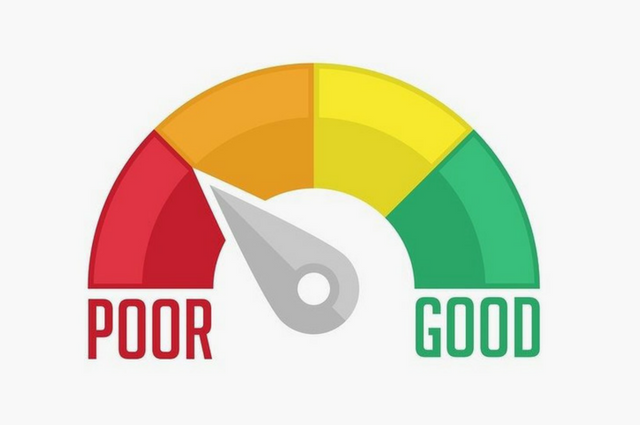After you’ve made up your mind to buy a commercial real estate property, the next biggest step is to know the form of financing.
The most common way of financing commercial real estate property is by raising loans.
So, does that mean that buying commercial real estate property is an easy loan because there are always loans to the rescue?
Well, not really. While raising loans is always a great option for financing commercial real estate property, it’s not always so easy.
Just because your friend was sanctioned a loan very easily, you cannot be sure that it’ll be easy for you too.
Banks and private commercial lender have different loan eligibility requirements that need to be met before you can be sanctioned with the loans.
One of the major loan eligibility requirements is the credit scores!
While you may not be thinking about credit scores all the time, your credit score can have a significant impact on whether or not you’ll be sanctioned a loan.
It also has a major impact on whether or not you’ll be approved to get credit cards and other personal loans. Having a good credit score is this essential in order to make your loan financing process a smoother one.
Especially, when you’re financing commercial real estate loans, the credit scores matter the most!
Many people waste a lot of time in running to their banks and private money lenders for getting a loan as the whole documentation process requires so much time and effort.
In the end, their loan request is knocked down because of a poor credit score! All the time and effort spent until then go down in the drain!
In order to avoid such instances wherein you’ll end up wasting so much time and efforts for nothing, it’s very important to know what your credit score is and decide if or not you’re eligible to get a loan.
There are websites that will tell you about your credit score and verifying it is a first step (Before running to commercial real estate loan providers or banks).
Financing your commercial mortgage property becomes much easier if you start working on improving your credit score!
Many commercial loan consultants will tell you this and here’s a sneak peek into how to actually improve your credit score.
In case you have a low credit score, you must know that it’ll be very difficult for you to raise your commercial real estate loans and thus you’ll be losing out in the game of real estate in the long run!
So, what do you do if you have a low credit score?
Well, there are some ways through which you can increase your credit score and thus become eligible for loan approval.
Here are some top tips that’ll help you improve your credit score! Read on – Tips to improve your credit score
1) The payment history counts!
One of the biggest things which is considered while determining your credit score is your payment history.
Whether or not you’ve paid your loans on time is the biggest deciding factor for your credit score. It doesn’t matter if the loan was a student loan or a credit card payment.
So if you’ve got a poor credit score because you had defaulted in repaying your loans on time, the only way of improving it would be to take small bank loans and pay it off on time.
Being 30, 60 or 90 late in paying back the loan debt puts a big dent in determining your credit score.
To regain the credit and improve your score, you can take up loans for a small term and clear it off on time without fail.
Remember that in order to improve your credit score, you can’t simply follow one or two steps.
It’s a process and takes time to show results. Because you can only prevent your credit score from getting worse and gradually improve your credit score but not change your past credit history!
Paying back your loans right on time should be an unsaid rule for you if you want to improve your credit score!
Take help of commercial loan consultants to get an idea about what loans can you easily finance so you can pay them off soon and improve your debt pay back abilities.
2) Raise your credit card limits
The credit bureaus usually determine the credit score by considering the debt levels as a percentage of your credit card limits.
Let’s say you have a credit card whose limit is $1,000 and you’ve used $100 as a debt. The credit bureaus will decide that your debt levels are 10%.
So basically, credit bureaus will allocate high credit scores to people whose debt levels are less.
You can do less about your past debt levels. But, you can always lower your debt levels by increasing the credit limits you have.
In other words, get more credit and don’t increase your debts accordingly. Get a new credit card (while also ensuring that you don’t end up paying huge annual fees) and don’t increase your debt limits.
This way, the percentage of your debt levels would decrease, thus increasing your credit score!
This method of improving the credit score is the easiest and it doesn’t require too much time in comparison to other methods.
But however, following one or two tips wouldn’t be sufficient if you’ve to improve your credit score on a sooner basis.
A combination of these tips would help immensely to improve your credit score in less period of time and that’s what is most important.
Read about – Crowd-funding or Direct Ownership: Which is better for Commercial Real Estate Property?
3) Use the lines of credit that you have regularly!
Many people believe that using the credit card will be viewed negatively and will impact the credit score in a negative manner. Let me tell you that it’s a myth!
Here’s the myth buster – Not using your credit lines at all will not influence the credit score as much as it would if you’re using the credit lines and are prompt in paying up the dues on time!
Using the credit lines and paying up the dues before the due date frequently will increase the credit score.
And it’s very logical! Using up the credit lines and repaying the dues on time will increase the credit score by actually building up the history of on-time payments!
So, don’t back off from using your credit lines. But ensure that you pack back your dues on time, every time!
4) Don’t close your old credit accounts
While it may be very tempting for you to close that credit account which is old and not in use, it could end up negatively in determining your credit score if it’s old enough to lengthen your average credit history.
Credit bureaus consider your credit history in determining the credit score and having a longer credit history means you’ve some points added up to your credit score.
This is the reason why commercial loan consultants always advice people to start applying for credit cards as soon as possible.
If you want to close your credit accounts because the annual charges are proving to be big expenses for you, you can always choose to shut off the newer accounts than the old ones!
5) Add yourself as an account holder to someone’s existing credit account
This might require the help of a friend or a relative to pull off. Holding yourself as an account holder in more than one credit accounts is a simple hack of increasing your credit history and increasing your credit lines overall.
You don’t even have to use up the credit lines here but just being added as a holder will help immensely in adding some extra years of credit history.
It’s one of the easiest ways and no-cost way of improving your credit score. Talk to your friend or a family member and seek their help!
6) Don’t check your credit scores very often
Yes, there are many credit bureaus that can publish your credit score and give you a report of your credit score.
But that doesn’t mean you keep checking your credit score every now and then, because that would impact your credit score negatively.
The credit bureaus believe that people who frequently check their credit scores have more difficulties in their cash inflows and thus are always willing to take loans which are why they’re checking their credit score.
Thus, don’t make the mistake of checking your credit score every now and then.
7) It’s not a bad idea to have an array of debt sources
The most common forms of credit are mortgages, auto loans, credit cards and student loans.
While it may sound impractical, the credit bureaus actually consider people who have an array of debt sources to be more capable of paying back more debts and thus increase their credit score.
So, it’s not a bad idea to have an array of debt sources at all.
You can also take help from Private Capital Investors as they are the expert commercial real estate hard money lenders.





